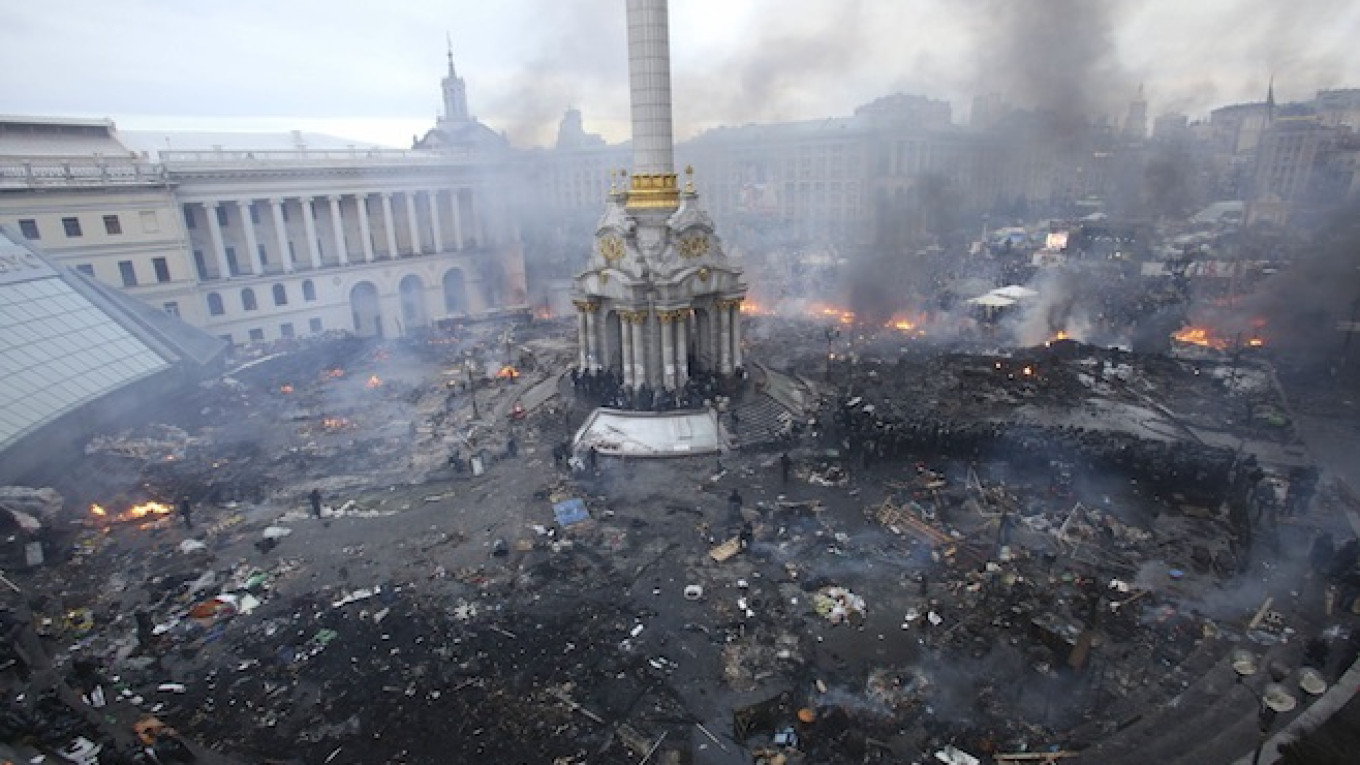War-torn Ukraine was one of the most dangerous places in the world for journalists this year, international press rights group Reporters Without Borders said in a report released Tuesday.
Ukraine ranked third among the world's deadliest locales for media professionals, with six such casualties this year, trailing behind Syria with 15 casualties and Palestine with seven, but beating Iraq and Libya, according to the watchdog's roundup of abuse against media professionals this year.
The study listed 66 journalists slain worldwide in 2014, a decrease from 73 last year, but reported an alarming trend of violence and intimidation becoming better organized. In total, 720 journalists have been killed worldwide since 2005.
Ukraine was ranked as the world leader in journalist kidnappings, with 33 over the course of the year, beating Libya's 29. The worldwide kidnapping tally was 119.
But the Eastern European country did not chart in the ranking of journalist imprisonments (178 worldwide), where the China, Eritrea and Iran claimed the top spots.
The Luhansk and Donetsk regions of eastern Ukraine, ravaged since springtime by a bloody pro-Russian insurgency, ranked among the five most dangerous destinations for journalists, alongside the Islamic State's domain in Iraq and Syria, eastern Libya, Pakistan's Balochistan province and the Department of Antioquia in Colombia.
Russia did not make the list, but the Paris-headquartered journalist rights group lists one journalist killed and four imprisoned here as of 2014, all of them regional media correspondents. Four journalists from Russian state media outlets were killed in Ukraine this year.
Russia ranked 148th of 180 countries in Reporters Without Borders' Press Freedom Index, and was included on its Enemies of the Internet list, which names and shames government agencies over Internet censorship and surveillance.
A Message from The Moscow Times:
Dear readers,
We are facing unprecedented challenges. Russia's Prosecutor General's Office has designated The Moscow Times as an "undesirable" organization, criminalizing our work and putting our staff at risk of prosecution. This follows our earlier unjust labeling as a "foreign agent."
These actions are direct attempts to silence independent journalism in Russia. The authorities claim our work "discredits the decisions of the Russian leadership." We see things differently: we strive to provide accurate, unbiased reporting on Russia.
We, the journalists of The Moscow Times, refuse to be silenced. But to continue our work, we need your help.
Your support, no matter how small, makes a world of difference. If you can, please support us monthly starting from just $2. It's quick to set up, and every contribution makes a significant impact.
By supporting The Moscow Times, you're defending open, independent journalism in the face of repression. Thank you for standing with us.
Remind me later.


